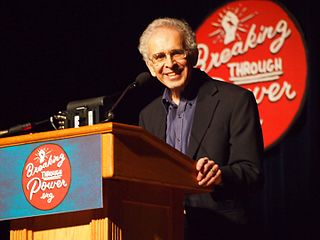A Quote by Michael J. Saylor
The industries that fall first are the industries that either produce electromechanical items that are now inferior to their software substitutes, or the industries that produce a mechanically created service that's now inferior.
Related Quotes
22 of 52 top (FDA) officials have worked for regulated industries, or organizations that cater to those industries...During a hearing held in 1969 by the House Inter-governmental Relations Subcommittee, it was disclosed that of 49 high ranking FDA officials who had recently resigned or retired, 37 joined or served as consultants to regulated industries.
More and more major industries are being run on software and delivered as online services—from movies to agriculture to national defense. Many of the winners are Silicon Valley-style entrepreneurial technology companies that are invading and overturning established industry structures. Over the next 10 years, I expect many more industries to be disrupted by software, with new world-beating Silicon Valley companies doing the disruption in more cases than not.































